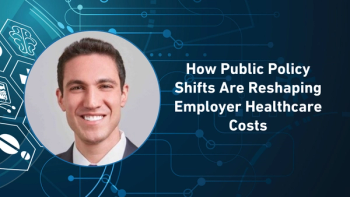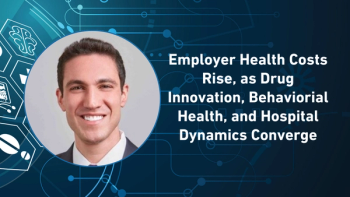
- Pharmaceutical Commerce - February 2023
- Volume 18
- Issue 1
Introducing Value & Access
New Pharma Commerce column addresses the relevance of pricing.
There are many reasons to devote a column to value and access.
Value and access are perhaps the most important and yet least comprehended two words in today’s biopharmaceutical industry. Corporate talk includes frequent mentions of value and reaching patients, but is it just lip service? Payers certainly think so.
In my recent article “The IRA is Industry’s Wake-up Call” (
Why are many companies surprised every time they receive a poor access or pricing decision? Over the last 10 years, 93% of new drugs reviewed in France received an innovation rating that does not warrant any premium price over standard of care. Firms keep making the same mistakes again and again. In some circumstances, a minimal evidence package with an imperfect comparator or surrogate endpoints may make sense. However, have we properly analyzed the situation, and was that a deliberate decision?
Many perceive the drug industry to be greedy. In the introduction of my book The Price of Global Health, I write: “How did the drug industry, with its lifesaving innovations, manage to earn a public image that is much worse than industries with products that kill, such as gun and tobacco industries?” That poor reputation and public anger resulted in the institution of effective price control in the US under the Inflation Reduction Act of 2022 (IRA). The same public anger resulted in the introduction of price controls in Germany in 2015 and subsequent increasingly restrictive measures.
Are governments fair? I am going to ask you to engage in an experiment. Please go to your regular grocery store and tell them that unfortunately you exceeded your food budget for the year by, say, $700, and ask them to refund the overage. I will let you use your imagination on the grocer’s reaction. Yet, governments now routinely demand repayments for overspending in the drug budget:
The implementation of IRA and other access evolutions around the world, such as the recent “AMNOG 2.0” decision in Germany, will also be topics of discussion in this column. We don’t know how the Centers for Medicare & Medicaid Services (CMS) will decide what is fair value for a drug. Yes, decide. The penalties to the industry for not agreeing to the “negotiations” are so severe, that you cannot speak of a real negotiation but rather an “offer that you can’t refuse.” We don’t know whether legal challenges of IRA will be effective and how IRA will affect the pipeline for new drugs and launch pricing.
Despite many contentions, the biopharma industry is a very competitive industry where companies make early development decisions based on a trade-off between multiple leads. An effective shortening of the patent life, which the IRA is, will result in lowering of an already
About the Author
Ed Schoonveld is a value and access consultant, and author of The Price of Global Health.
Articles in this issue
almost 3 years ago
Pharmaceutical Commerce - February 2023 Issue (PDF)almost 3 years ago
The Impact of Industry-Powered Educationalmost 3 years ago
Disruptive Factors Shape RA Landscapealmost 3 years ago
Pharma Cold Chain in Search of Equilibriumalmost 3 years ago
The CGT Evolution: Key Considerationsalmost 3 years ago
Aligning Cold Chain and Sustainabilityalmost 3 years ago
Key Supply Chain Tech Trends for 2023almost 3 years ago
Applying AI Case Studies in Pharmaalmost 3 years ago
Tapping into Digital IntelligenceNewsletter
Stay ahead in the life sciences industry with Pharmaceutical Commerce, the latest news, trends, and strategies in drug distribution, commercialization, and market access.




